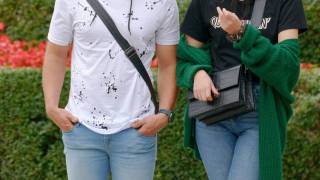Herpes-2 Vaccine Candidate Update

Various herpes vaccine candidates have been in development since the 1920s.
But, in the intervening nine decades, all research efforts for herpes simplex viruses 1 and 2, have failed to produce an effective vaccine.
These disappointing research efforts are primarily due to the variability of Herpesviruses, of which there are over 100 types.
Moreover, Herpesviruses are known for their ability to establish lifelong infections.
Other herpesviruses include varicella-zoster virus (HHV-3), Epstein–Barr virus (HHV-4), human cytomegalovirus (HHV-5), human herpesvirus 6A and 6B (HHV-6A and HHV-6B), human herpesvirus 7 (HHV-7), and Kaposi's sarcoma-associated herpesvirus (HHV-8).
With the success of the Varicella vaccine, known as the chickenpox vaccine, and the zoster vaccine for shingles and postherpetic neuralgia, many people are asking when will a herpes simplex virus become available.
***Order your Discreet, affordable Lab tests today***
This unmet consumer demand is because HSV-2 causes genital herpes and is a lifelong infection.
According to the Centers for Disease Control and Prevention (CDC), genital herpes is widespread throughout the world and is generally sexually transmitted.
Over 24 million people in the United States are infected with HSV-2 and there are 776,000 new infections each year.
There is one HSV-2 vaccine candidate in late-stage clinical trials. VCL-HB01 is Vical’s Therapeutic HSV-2 Vaccine.
**** Find a clinical trial in 60 seconds ****
VCL-HB01 is a bivalent DNA vaccine candidate, encoding full-length HSV-2 UL-46 and gD antigens was developed in collaboration with the University of Washington.
In a Phase 1/2 randomized, double-blind, placebo-controlled trial of 165 HSV-2 infected adults, VCL-HB01 demonstrated a statistically significant reduction in genital lesion rate compared to baseline.
This good news was followed by a Phase 2 randomized, double-blind, placebo-controlled trial in approximately 225 HSV-2 infected adults. They receive VCL-HB01, 1-mL dose by intramuscular injection once every 28 days for 4 doses.
This study has been underway since September 2016 to evaluate the primary efficacy endpoint of reduction in annualized recurrence rates over a 12-month follow-up period.
Recurrence rate is one of the most clinically meaningful endpoints as it provides information on both the number and spacing of recurrences over time in the chronic disease setting.
Until this vaccine candidate, or another one comes to market, HVS-2 infected people can only manage the ongoing symptoms with medications.
Antivirals, such as acyclovir, famciclovir, and valacyclovir are the most effective medications available for people infected with HSV.
These medications can help reduce the severity and frequency of symptoms.
But, these antivirals cannot cure the HSV-2 infection.
Our Trust Standards: Medical Advisory Committee


























